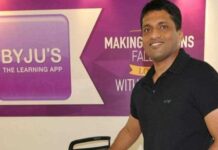
Not only at Thomas Cook but the world of work is changing. The pandemic has changed the way we work and the way we approach talent. Human resource departments and talent-management teams need to figure out how to meet evolving workforce demands, often with fewer resources. Sometimes the resources that are available are also not skilled to deal with the current role and its challenges.
One of the key strategies HR teams need to develop in order to help their organisations remain competitive is a stronger focus on employee learning and development. Establishing a learning culture in your company by using performance reviews as an important point will make your employees feel cared for and engaged.
At the Thomas Cook Group, we focus on developing our talent through a robust learning and development plan. We have an annual training and development calendar which is announced after doing an in-depth need analysis. The goal is to build a more resilient workforce. In fact, cross-training and upskilling employees have been a top goal for the management in 2020-2021 right through the pandemic.
We see building critical skills at Thomas Cook as vital to driving many of our organization’s priorities move successfully into the future. Our organization is not alone. A widening talent gap is one of the biggest issues driving the need to improve and increase the skills of current employees. Employers are simply struggling to find high-quality talent. A big challenge for most HR teams is finding enough people that are capable to do the work that the organisation needs to be done.
A performance review is one of the best times to review an employee’s options for career growth. It is a time to discuss growth opportunities for employees within their current department or team and within other departments in the organisation. All employees value having options for internal mobility, lateral movements and internal hiring also has positive effects on employee tenure.
By promoting continued learning and development as part of its company culture, a business can boost employee job satisfaction, remain competitive and increase its employee satisfaction by bringing out the full potential of an existing workforce.
Today’s workforce comprises a large number of millennials. Continued learning plays a significant role in job satisfaction, particularly among the younger generation. Even though millennials are known for frequently changing jobs, the majority still value career development and will seek out organisations that can provide a learning opportunity.
People in their mid to late careers tend to look for stability and for long-term roles, and therefore roles within which they will have the opportunity to grow as professionals. Employees look to employers to provide training and development and are likely to change jobs if this is not available. Providing plenty of opportunities for upskilling at work means employers are far more likely to retain and attract scarce talent.
The Great Resignation has affected almost all organisations both large and small. Retaining employees is one of the main goals of the management in all organisations. Retraining employees who already understand and are committed to a company’s structure, culture, and mission is a great reason for a company to reskill its workforce.
By reskilling existing employees, organisations invest in the long-term retention of staff and empower themselves to prepare for fast-changing skills demands. Where employees are willing to learn and adapt quickly, an employer creates a workforce that can not only address an immediate reskilling need but also meet future, emerging skills gaps as they arise.
Organisations often focus on building technical and functional skills with their employees. As technology becomes the need of the hour with a hybrid workforce, it is equally becoming equally important to focus on building employee soft skills. With businesses increasingly relying on automation and algorithms and remote working, key abilities such as communication, problem-solving, networking, and critical thinking need to be developed.
As the demand for digital skills grows, there is a risk that communication and teamwork within an organisation will drop. The challenge most organisations are currently facing is to ensure that soft skills are not reduced by increased use of screens and to identify and build a workforce who still regard communication and teamwork as important, even when working primarily with technology.
At Thomas Cook, being one of the progressive employers, enabling employees to be much more involved in their personal development is part of the performance management review process. During performance reviews, one of the main areas of focus is how employees can look at their performance and “feed-forward” on what changes that they can make to help in their overall development especially in upskilling themselves.
We invite our people to make suggestions and use people analytics, behavioral and performance software to understand where there may be areas for development as also discover their strengths which they can utilize in their roles. Through this process, developing skills is owned by everyone. They become an intrinsic part of the company culture with upskilling and reskilling opportunities for all. In the words of Benjamin Franklin, “Tell me and I forget, teach me and I may remember, involve me and I learn.”








